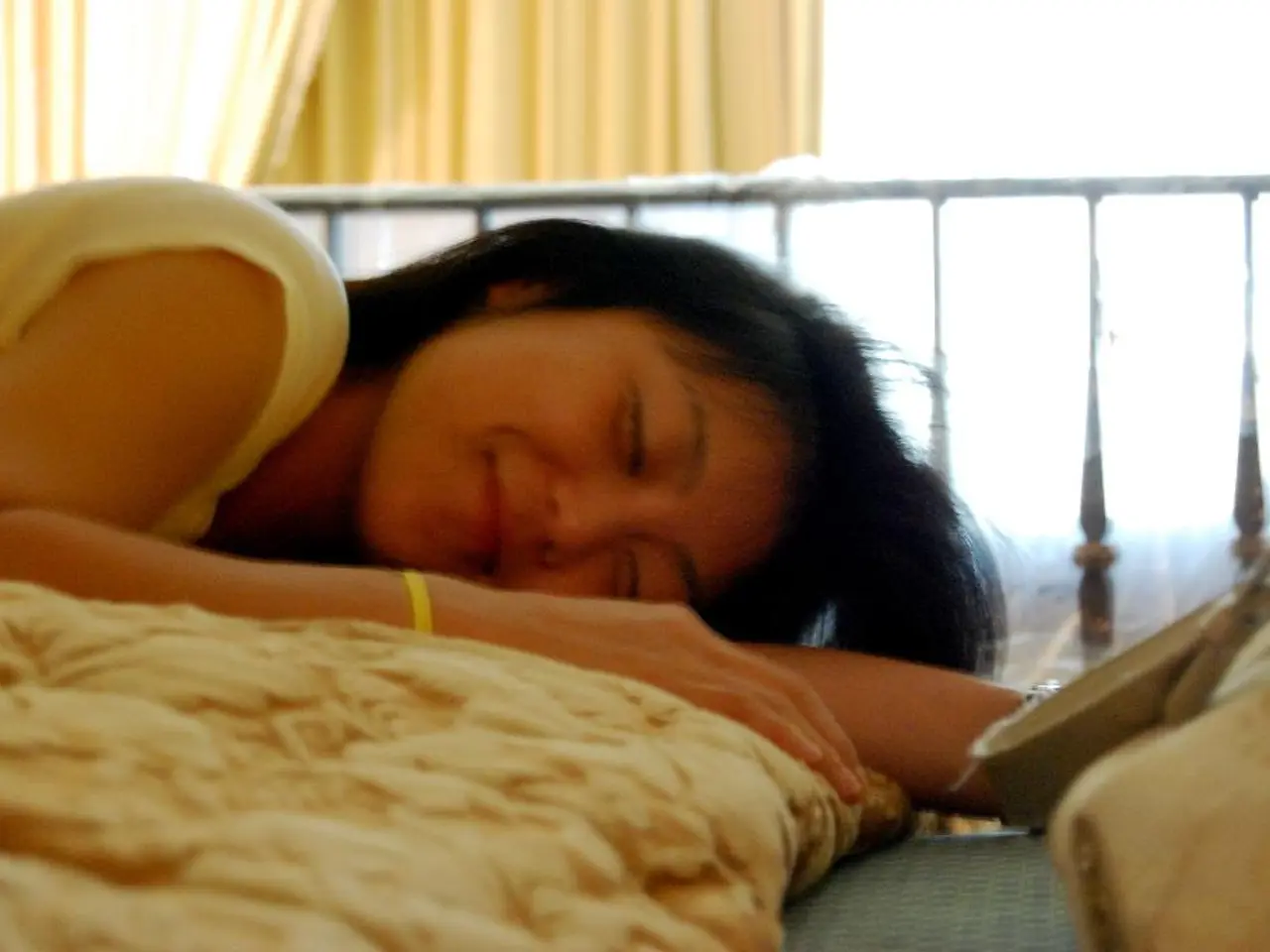Inquiry on potential benefits of sertraline for managing premature ejaculation.
In the quest to address premature ejaculation (PE), a common concern for many individuals, there are several options beyond the popular antidepressant, sertraline. This article explores various pharmacological, topical, behavioral, and psychological treatments that can help manage PE, each with its unique mechanisms and side effect profiles.
Premature ejaculation (PE) is a condition where a person with a penis ejaculates too quickly during sexual activity. PE can stem from psychological or physical reasons or a combination of both. A 2019 study suggests that there is some scientific evidence to support the use of selective serotonin reuptake inhibitors (SSRIs) like sertraline as an effective treatment for PE.
Sertraline, belonging to the group of antidepressants, works by increasing the levels of serotonin in the brain. Dosages can vary, with some study participants receiving a 50-mg dose every 12 hours, but it can also come in dosages as low as 25 mg per day and as high as 200 mg per day. However, it's essential to consult with a healthcare provider for the appropriate dosage.
While sertraline may help people experiencing PE last longer, it does come with potential side effects, such as nausea, diarrhea, tremor, indigestion, decreased appetite, excessive sweating, failure to ejaculate, decreased sex drive, and more. It's crucial to discuss these side effects with a doctor and consider gradual dose reductions when stopping the medication.
Besides sertraline, other SSRIs used off-label for delaying ejaculation include fluoxetine, paroxetine, citalopram, escitalopram, and clomipramine. Dapoxetine, a short-acting SSRI specifically approved in some countries for PE treatment, is another alternative.
Topical anesthetics like lidocaine and benzocaine, applied to the penis before sex, can reduce sensation and delay ejaculation, with fewer systemic side effects than SSRIs. However, some men or their partners may dislike the numbness effect.
Behavioral techniques such as the stop-start technique (interrupting stimulation before ejaculation to increase control), squeeze technique (applying pressure to the penis to delay ejaculation), pre-sex masturbation (to reduce urgency during intercourse), and pelvic floor exercises (strengthening muscles involved in ejaculation to prolong duration) can also be beneficial.
Specially designed condoms that reduce sensation, injection therapy with vasodilators, psychological therapy, and combination treatments with PDE5 inhibitors (used for erectile dysfunction) may also help delay ejaculation.
Sex therapy can be useful for addressing the psychological causes of PE. By addressing guilt, anxiety, or other psychological contributors, symptoms may improve.
In summary, there are multiple alternatives to sertraline for treating PE, each with varying mechanisms and side effect profiles. Choosing a treatment often depends on individual preference, underlying causes, and tolerability. Consultation with a healthcare provider is advisable to tailor therapy.
It's essential to remember that if side effects are persistent or extreme, a person should discuss stopping the medication with their doctor.
[1] Mayo Clinic. (2021). Premature ejaculation. [online] Available at: https://www.mayoclinic.org/diseases-conditions/premature-ejaculation/diagnosis-treatment/drc-20371907
[2] NHS. (2021). Premature ejaculation. [online] Available at: https://www.nhs.uk/conditions/premature-ejaculation/
[4] American Urological Association. (2020). Management of Premature Ejaculation. [online] Available at: https://www.auanet.org/guidelines/male-sexual-health/premature-ejaculation-(pe)-2020
- Beyond sertraline, various treatments for premature ejaculation (PE) include other selective serotonin reuptake inhibitors (SSRIs) such as fluoxetine, paroxetine, citalopram, escitalopram, and clomipramine, and dapoxetine, a short-acting SSRI approved for PE treatment in certain countries.
- Topical anesthetics like lidocaine and benzocaine, applied to the penis before sex, can minimize sensitivity and delay ejaculation, offering fewer systemic side effects compared to SSRIs, while possibly causing numbness that some men or their partners may find unpleasant.
- Behavioral techniques, including the stop-start technique, squeeze technique, pre-sex masturbation, and pelvic floor exercises, can help individuals with PE gain more control and prolong duration.
- Other potential treatment options include specially designed condoms that reduce sensation, injection therapy with vasodilators, psychological therapy, and combination treatments with PDE5 inhibitors, often prescribed for erectile dysfunction.
- Sex therapy can help individuals address psychological factors contributing to PE and potentially improve symptoms.
- When considering treatment options, it's crucial to consult with healthcare providers to determine the best approach based on personal preferences, underlying causes, and tolerability while being mindful of potential side effects and always considering discussion of stopping the medication if side effects persist or become extreme.




